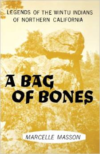Description
Archaeologists identify the Menomini as descendants of the Middle Woodland Indians, who flourished in the area for thousands of years before the first Europeans arrived. According to Menomini legend, their people emerged from the ground near the mouth of the Menominee River. It was along that river that Sieur Jean Nicolet first encountered the Menomini in 1634. The Menomini, a peaceful people, lived by farming, hunting, fishing, and gathering wild rice. Perhaps because of their peaceful nature their name was not generally found in the white military annals, and they were largely unknown until 1892, when Walter James Hoffman published a detailed ethnographic account of them. Felix Keesing’s classic 1939 work on the Menomini is one of the most detailed, authoritative, and useful accounts of their history and culture. It superseded Hoffman’s earlier work because of Keesing’s modern methods of research. This work was among the first monographs on an American Indian people to employ a model of acculturation, and it is also an excellent early example of what is now called ethnohistory. It served as a model of anthropological research for decades after its publication. Keesing’s work, reprinted in this new Wisconsin edition, will continue to serve as a comprehensive introduction for the general reader, a book respected by both anthropologists and historians, and by the Menomini themselves. It is still the most important study of Menomini life up until 1939.






Reviews
There are no reviews yet.